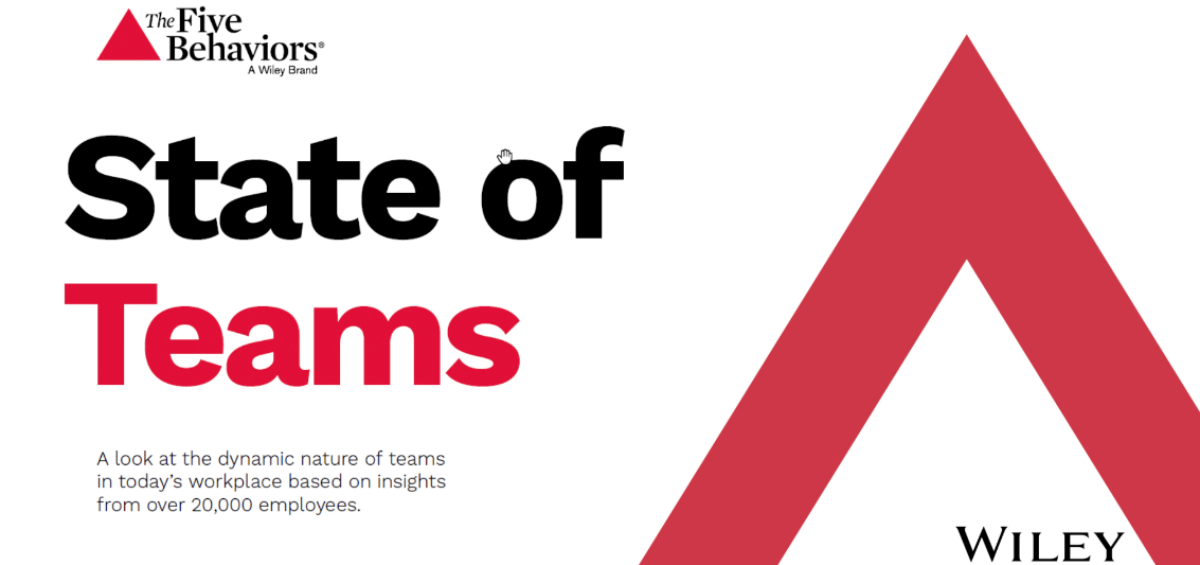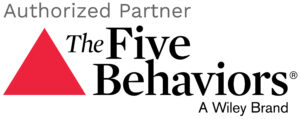
Teams are the building blocks of any organization1, and our working lives are becoming more team-oriented than ever before.
Over the past several decades, employees have devoted much more of their time to collaboration—in meetings, on phone calls, or via email and chat platforms. Engaging with their team(s) now accounts for over 60% of employees’ time.
This proliferation of teams, however, has complicated employees’ working lives. As teams become more complex, more fluid, and more remote, team members must navigate an environment in constant flux. That’s no easy task, and employees must be flexible, socially adept, and relationship savvy in order to navigate interpersonal challenges and achieve collective gains within and across their teams.
Wiley Workplace Learning Solutions conducted a survey in February and early March 2020 to investigate the dynamic nature of teams in the workplace—and how employees and employers are responding2. Based on the responses of over 20,0003 employees across a wide array of industries and organizational positions, from individual contributors to C-suite executives, teams suffer from a critical interpersonal skills gap that impedes their potential to achieve.
Teams in today’s workplace are more complex, more fluid, and more dispersed than ever before.
Over the past several decades, the workplace has undergone considerable change, driven in part by new technologies, innovation, global competition, and labor outsourcing.
As the need for constant innovation continues apace, organizations find themselves in a constant state of flux. In response to these external forces, organizations are reshaping their workplaces and placing new expectations on how and where employees work.
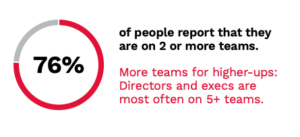 Our research shows that today’s teams are more complex: Employees work on more teams and with more people on a daily basis compared to just five years ago. 76% of employees are part of at least two teams within their organization, most often working on two to three teams.
Our research shows that today’s teams are more complex: Employees work on more teams and with more people on a daily basis compared to just five years ago. 76% of employees are part of at least two teams within their organization, most often working on two to three teams.
Not only do people work on more teams, but they work on more types of teams, as well. 73% of respondents are part of at least two different types of teams, whether project-based, departmental, or matrix. Some types of teams are more fluid than others. A matrix team, for example, requires employees to swiftly learn and adapt to the working approaches and mindsets of their counterparts in other departments. Other types, like project-based teams, most often last just a few months. In that time, employees quickly come together, form bonds, produce work, and disassemble. This is especially salient for the 41% of respondents who have worked on teams with consultants and temporary contractors. Stability on teams can be challenging to find!
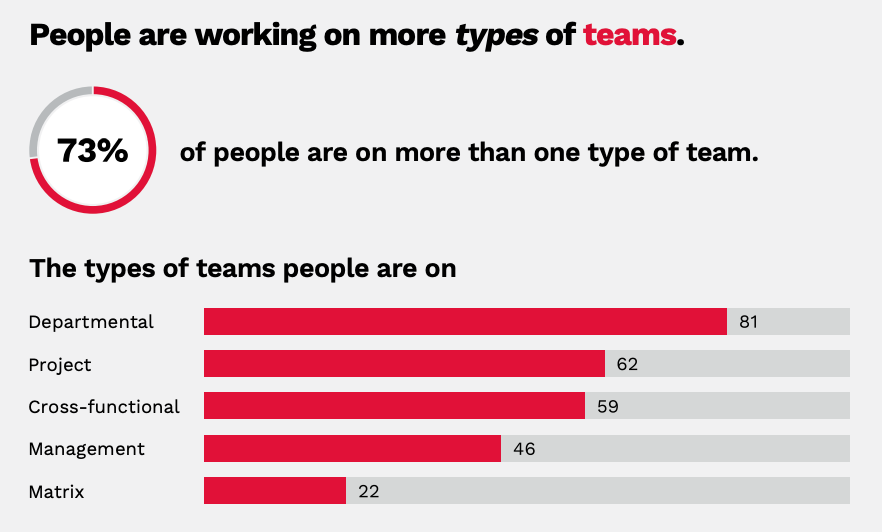
Moreover, their teammates are increasingly physically distant, which exacerbates the challenges of becoming successful teams. In the past year, 28% of respondents have worked with at least one member based in another country, and 51% have worked on teams with at least one member who collaborated virtually. As remote work proliferates in the era of COVID-19, however, we expect this number to have increased considerably.
The changing workplace poses real challenges for employees of all roles and responsibilities. These dramatic shifts—in the number, type, and geographical distribution of teams—require that employees possess a certain interpersonal skillset for effective teamwork, one that they can bring to any team they’re a part of. The problem, though, is that the behaviors within this skillset can be difficult to recognize, let alone adopt.
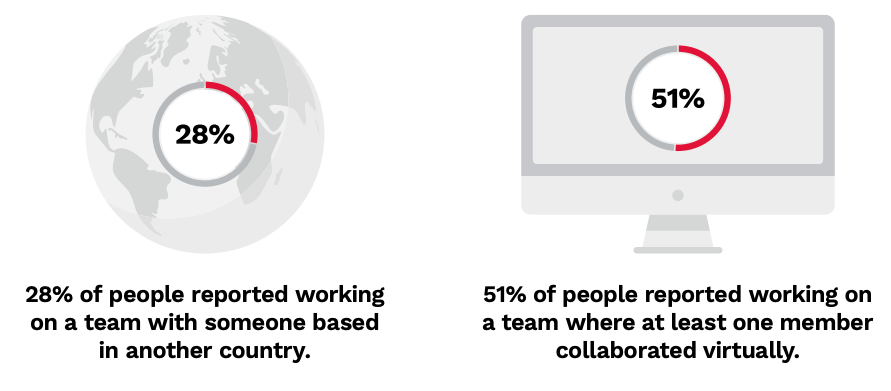
1 DiazGranados, Deborah, Marissa L. Shuffler, Jesse A. Wingate, and Eduardo Salas. 2017. “Team Development Interventions” in The Wiley Blackwell Handbook of the Psychology of Team Working and Collaborative Processes. Hoboken, NJ: John Wiley & Sons, Inc.
2 Respondents were asked a range of questions aimed at understanding their involvement on teams and engagements with team members. This included questions about the characteristics of teams they’re on, ineffective teamwork and its consequences, and the frequency and importance of various team behaviors.
3 Based primarily in the United States.

